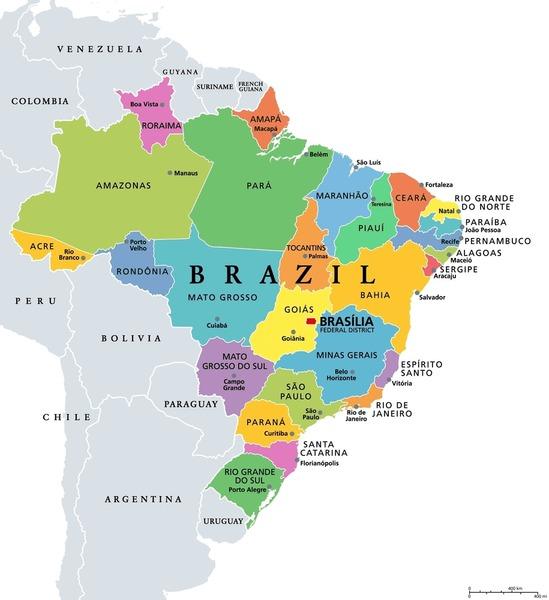In a striking display of diplomatic rebuff, Brazil has consistently pushed back against former U.S. President Donald Trump’s attempts to assert influence over its political landscape. As tensions between the two nations underscore broader challenges in U.S.-Latin America relations, Brazil’s unequivocal stance sends a clear message: it will not tolerate external interference. This ongoing saga highlights the complex interplay of power, sovereignty, and regional dynamics amid a shifting global order.
Brazil Asserts Sovereignty Amid Persistent U.S. Diplomatic Pressure
In recent months, Brazil has taken a firm stance against sustained diplomatic pressures from Washington, signaling a clear message of autonomy and national pride. Brazilian officials have publicly criticized the ongoing interference attempts, emphasizing that foreign influence will not dictate the country’s domestic policies. This growing assertiveness showcases Brazil’s increasing confidence on the global stage, seeking to prioritize its own strategic interests over external demands.
Key areas of contention include:
- Trade negotiations hindered by U.S. demands on environmental regulations
- Military cooperation scrutinized amid sovereignty concerns
- Diplomatic exchanges strained by divergent geopolitical agendas
| Aspect | Brazil’s Position | U.S. Pressure |
|---|---|---|
| Amazon policy | Protect sovereignty, promote development | Environmental enforcement demands |
| Defense alliances | Selective cooperation, no dependency | Military base access requests |
| Trade Talks | Balanced multilateral deals | Impose tariffs, restrict exports |
Analyzing the Impact of Trump’s Policies on Brazil-U.S. Relations
The Trump administration’s approach to Brazil marked a distinct shift in bilateral relations, characterized by a mixture of assertive rhetoric and policy decisions that often clashed with Brazil’s geopolitical priorities. Key issues such as environmental policy, trade tariffs, and defense cooperation revealed a complex dynamic where both nations struggled to find common ground. While Trump’s America prioritized a “America First” stance, Brazil sought to assert its sovereignty, pushing back against perceived U.S. interference in the Amazon and resisting aggressive trade demands.
Notable impacts included:
- Environmental Tensions: U.S. criticism of Brazil’s Amazon deforestation policies sparked diplomatic friction, with Brazilian leaders accusing Washington of hypocrisy and meddling.
- Trade Disputes: Tariffs introduced on Brazilian steel and aluminum strained economic ties, fueling nationalist rhetoric domestically in Brazil.
- Defense Cooperation: Although dialogues on military collaboration continued, skepticism toward U.S. intentions grew amid shifting political landscapes.
| Policy Area | Trump Era Action | Brazil’s Response |
|---|---|---|
| Amazon Protection | Criticism & pressure | Rejection of interference |
| Trade Tariffs | Steel & aluminum tariffs | Retaliatory threats |
| Military Ties | Continued talks | Heightened caution |
Strategic Recommendations for Rebuilding Trust Between Brazil and the United States
To mend the increasingly frayed relationship, both nations must prioritize inclusive diplomatic dialogues that move beyond partisan rhetoric. Establishing a bi-national task force focused on economic cooperation and environmental preservation could act as a neutral ground for rebuilding trust. This approach encourages collaboration on shared interests such as Amazon rainforest protection and trade stability, areas where mutual benefits are clear and urgent.
Furthermore, improving cultural and educational exchanges through expanded scholarship programs and joint research initiatives will foster grassroots connections, creating a foundation of goodwill among emerging leaders. Prioritizing transparency and consistent communication will be critical. Below is a concise roadmap outlining actionable steps for restoring confidence:
| Key Focus | Recommended Action | Expected Impact |
|---|---|---|
| Diplomacy | Bi-national task force establishment | Enhanced cooperation on trade and environment |
| Cultural Exchange | Increased scholarship and research programs | Stronger interpersonal and institutional ties |
| Communication | Regular high-level dialogue sessions | Restored transparency and predictable policies |
The Way Forward
As tensions between Brazil and the United States persist, the South American nation’s firm stance against former President Trump underscores a shifting dynamic in international relations. Brazil’s repeated rebuffs highlight its desire to assert sovereignty and chart an independent course on the global stage. Moving forward, how these exchanges will influence diplomatic ties remains a critical question for policymakers on both sides.




